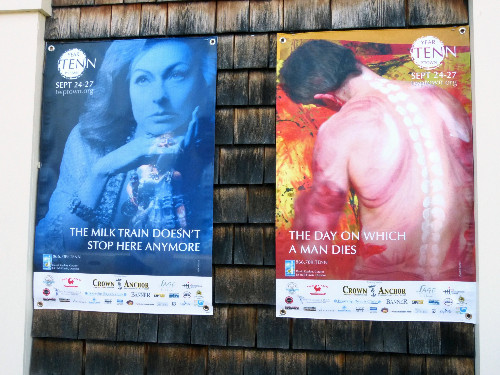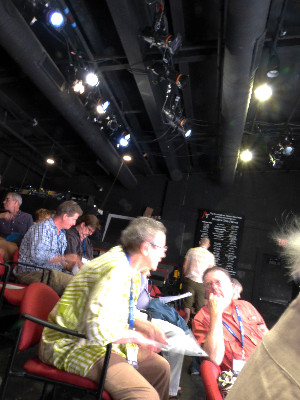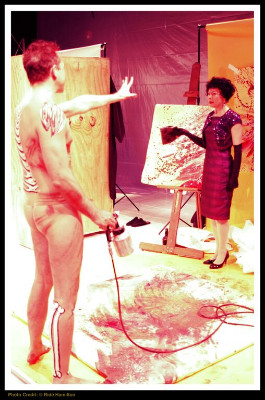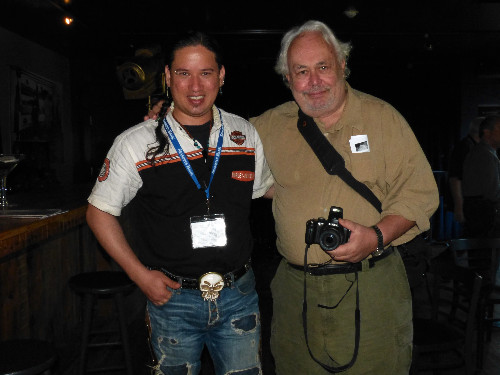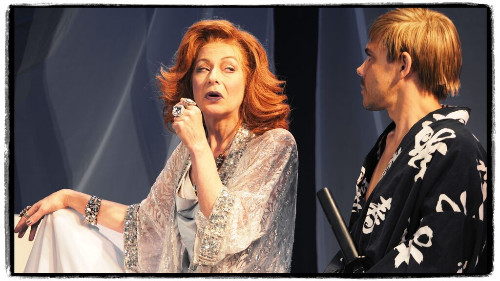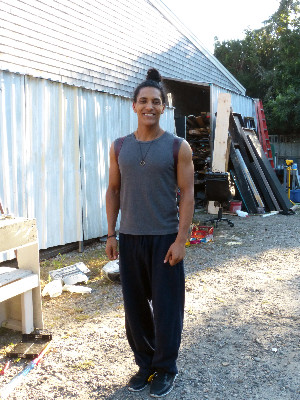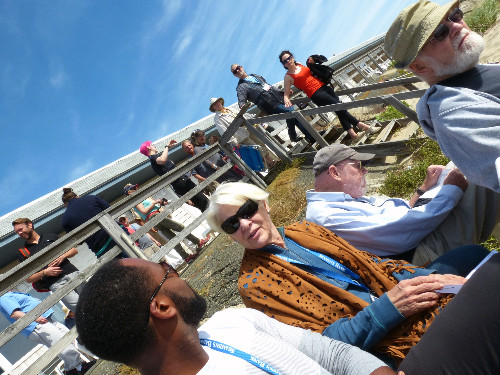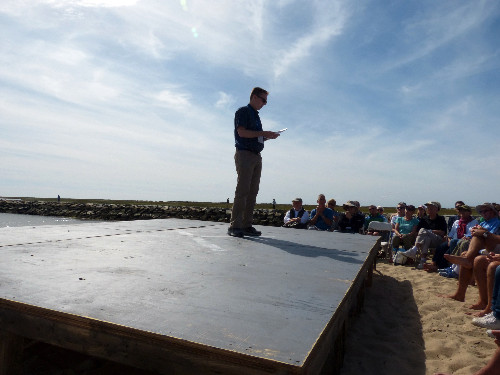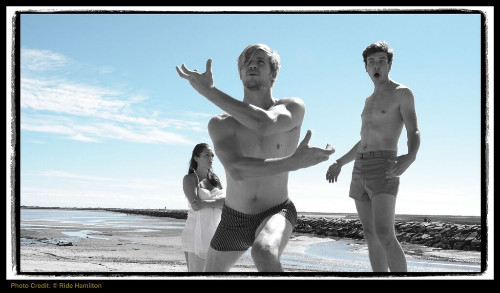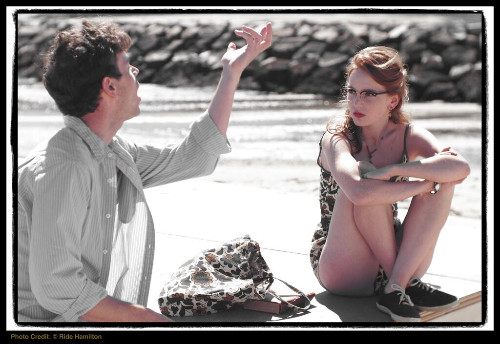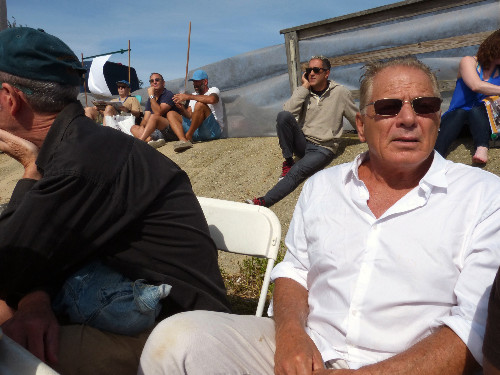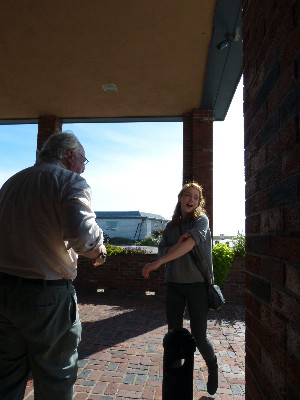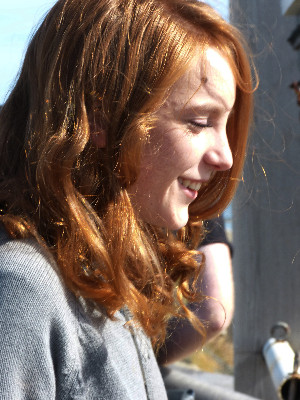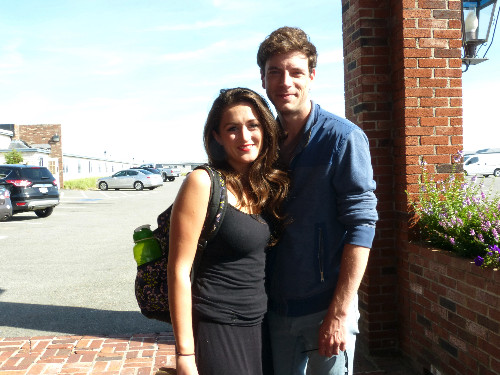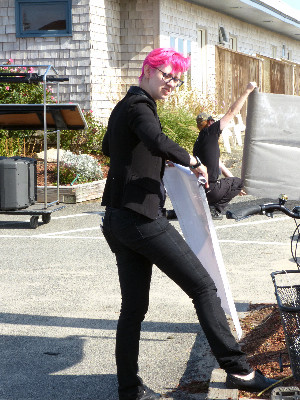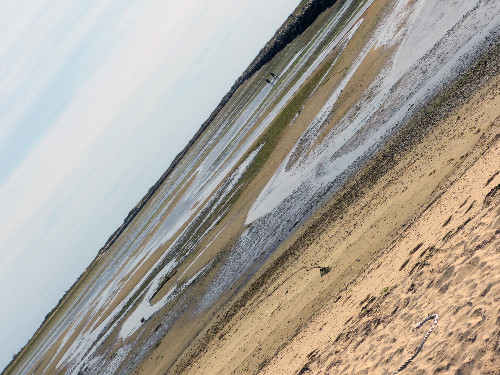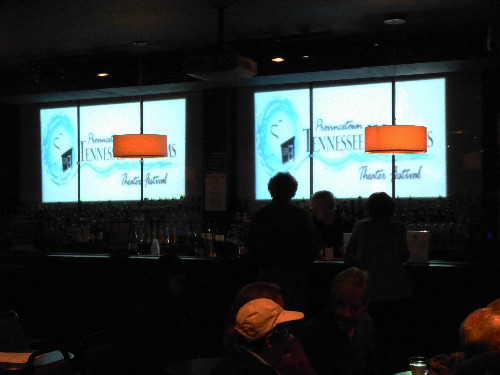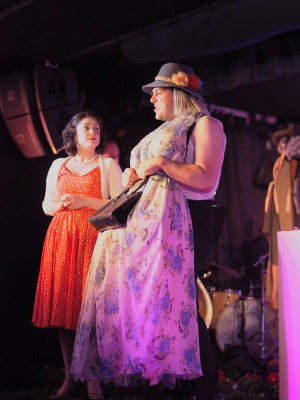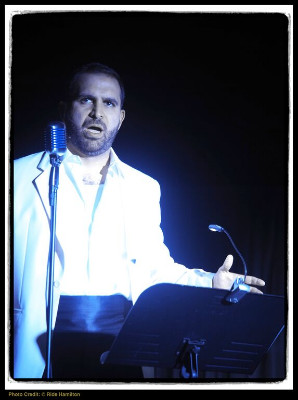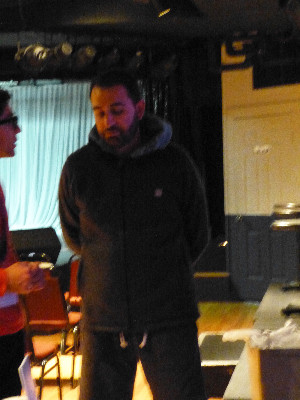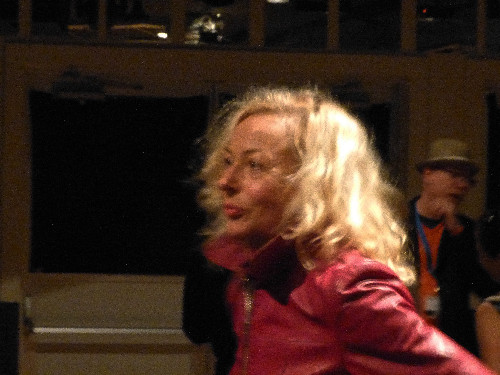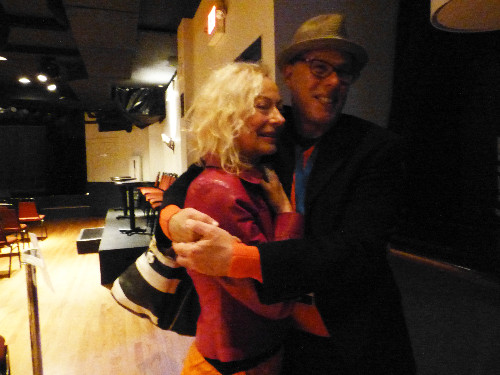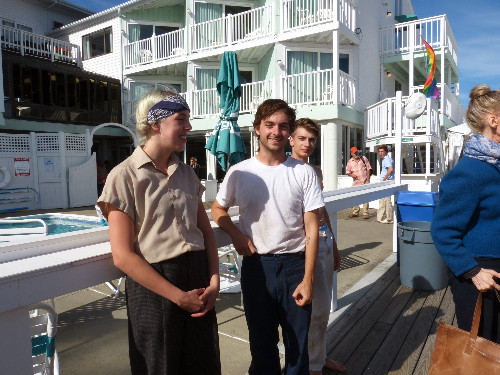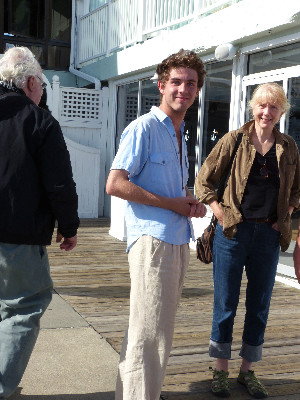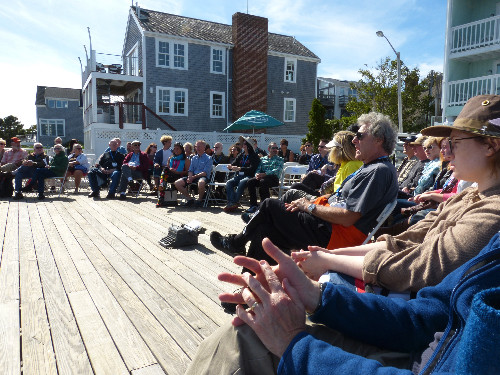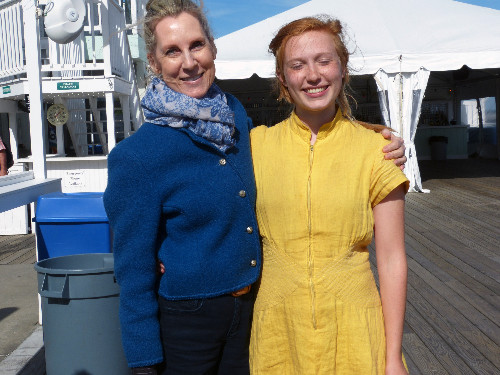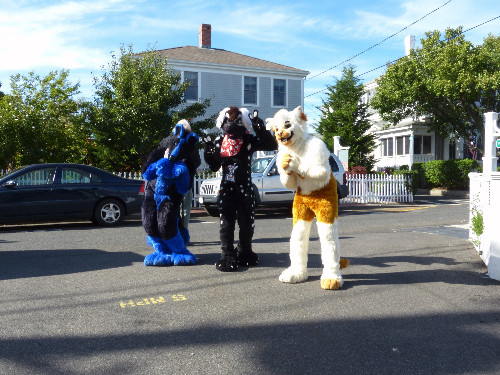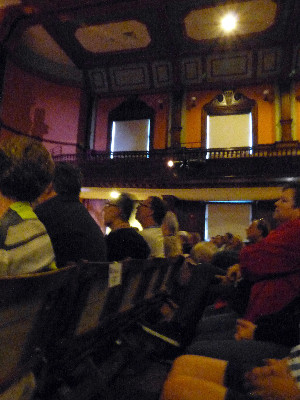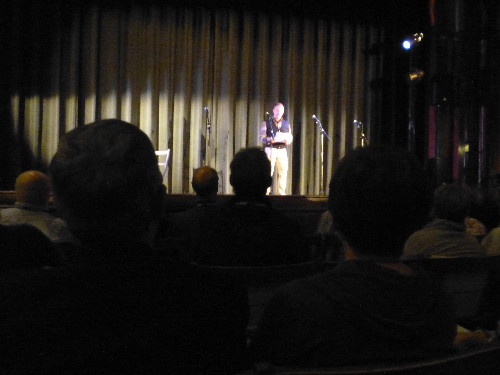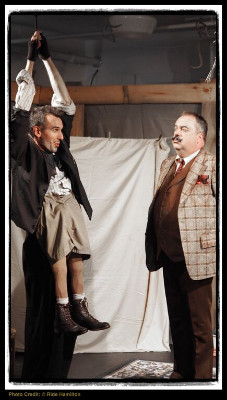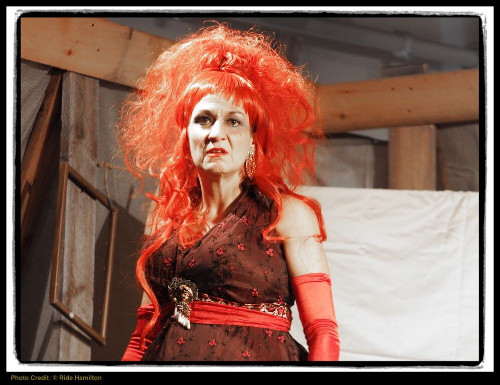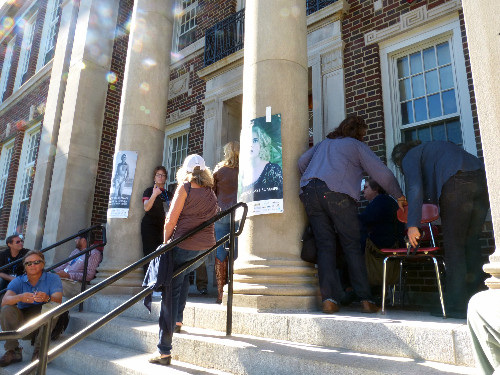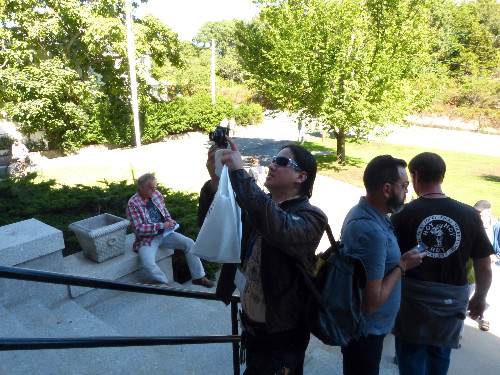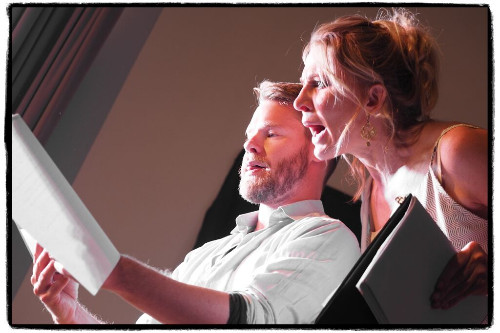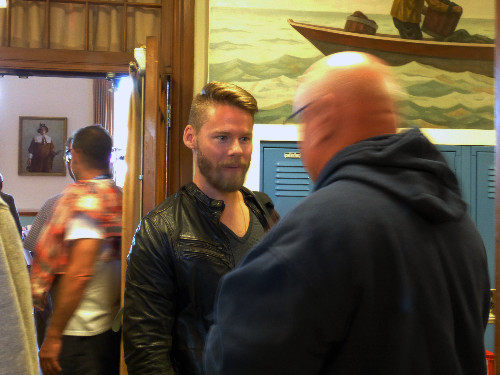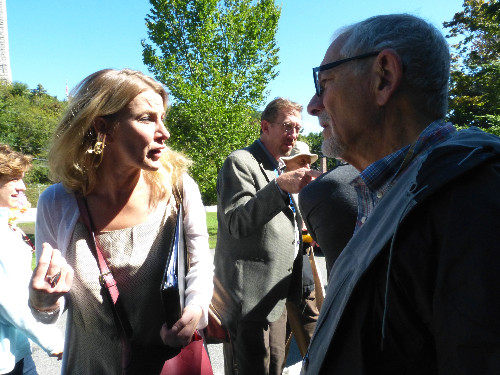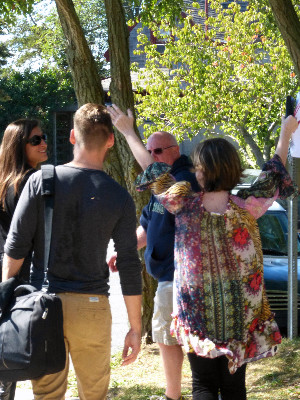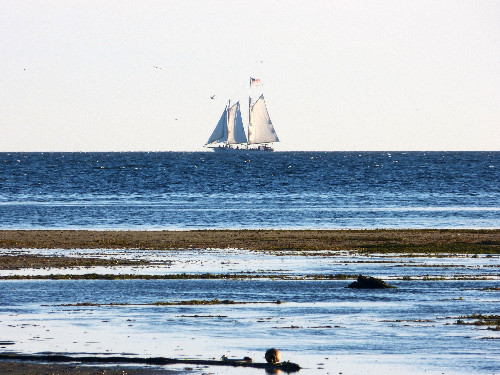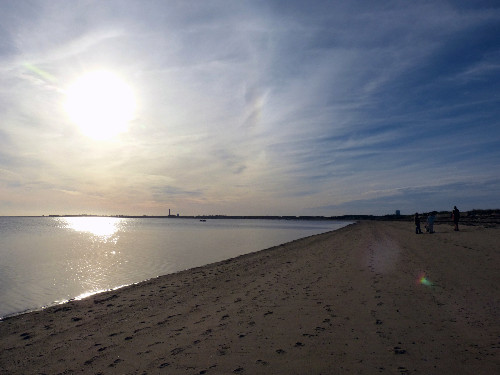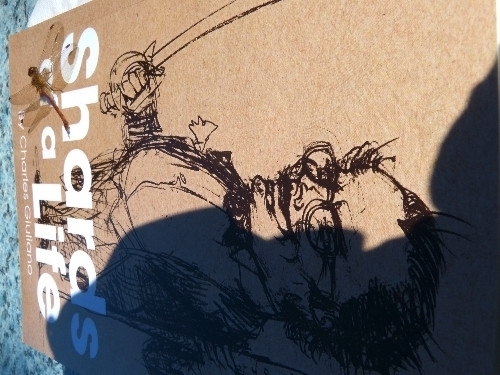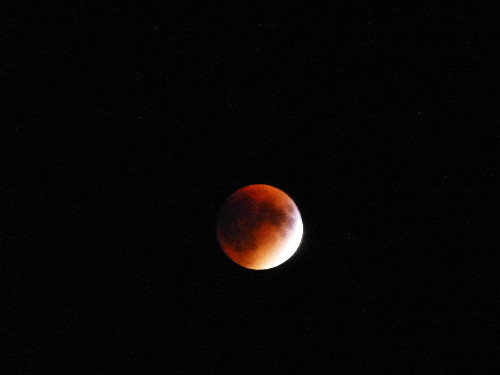Provincetown Tennessee Williams Theater Festival
Overview of a Week in the Sun: Literally and Culturally
By: Astrid Hiemer - Oct 01, 2015
What a glorious week we just had on The Cape! We arrived a day early at our Cape Cod beach hotel to prepare for an intense four days immersion into everything Tennessee Williams (TW), to relive the familiar and more importantly, experience new discoveries.
And, in fact, we almost felt then that we had seen the best festival highlights at the end of opening day on Thursday, September 24, by selecting two plays: The Day on Which a Man Dies and The Milk Train Doesn’t Stop Here Anymore at Provincetown Theater.
Abrahamse & Meyer Productions, a Cape Town company, returned for the fourth time from the African continent with four fine actors. David Kaplan directed and designed the production of The Day on Which a Man Dies and both major parts in each play were performed by Jennifer Steyn and Marcel Meyer. Daniel Richards and Nicholas Dallas were also beautifully convincing in their given roles.
A painter, perhaps Jackson Pollock, realizing that he has reached the end of his creative rope, commits suicide by swallowing Lysol during a frenzied and alcoholic mania. Pushed toward his death by his controlling lover, who demands a financially secure position in life, because she gave her best years in support of him. Steyn’s performance here is strong, measured and coldhearted, whereas the artist’s role (Meyer) starts on a high pitch, frantically spray painting a canvas and continually boozing. His nearly naked body is also spray-painted and finally his actions reach a verbal and emotional ceiling, before he picks up the Lysol bottle and collapses dying.
Another juxtaposition is given by the location, Kyoto, Japan, the serenely speaking Japanese protagonist (Richards) and Second Stage Assistant (Dallas), moving props around silently. The location is a double hotel room, where one side was turned into the chaotic temporary studio and the other side remained the cold bedroom. A movable wall connects and disconnects the actors, while bringing the drama into focus.
The Milk Train Doesn’t Stop Here Anymore reverses the energy of the main characters. Steyn performs her role as Flora ‘Sissy’ Goforth in an over-the-top manner and Meyer as Christopher Flanders, the penny-less professional guest, or perhaps as The Reaper, who helps rich old ladies into the other side of life with dignity and compassion.
The play takes on a Kabuki tone via sound, costumes and manners portrayed in minor roles. Here, Dallas is given opportunity to show his acting chops in four parts. Steyn received the Fleur du Cap Theatre Award as Sissy Goforth and has returned to Provincetown for the third time in this most successful role. With each costume change she appears laden with more glitter and bling. A couple of days later while speaking with her, she was glad to know that she could project the intensity of Mrs. Goforth during her first performance, while she was still feeling jet-lagged.
The director of Milk Train, Fred Abrahamse, updated the staging of the play wildly successfully so that it should be shown in many more theaters. The first Broadway run in 1964 lasted for only five performances and had not been reproduced in the US until 2011 with Olympia Dukakis as Sissy Goforth and still is not widely recognized as a major Williams play. Kaplan, as curator of the festival, emphasized at one point that TW Provincetown has brought to life from the archives and out of the shadows 11 plays, posthumous world premieres with the hope of continued productions in other places.
On Friday we set out to Herring Cove Beach at the tip of Provincetown, where approximately 100 people sat in the sand on folding chairs. On simple grey wooden slats, built into a rectangular stage, the cast of four young actors performed The Parade, subtitled Approaching the End of a Summer: ‘August, 1940, on a brilliant blue and gold expanse of sand dunes, sky and sea on the New England Coast.’ The preface fit perfectly every day that The Parade was performed by the Peregrine Theatre Ensemble, with director Jef Hall-Flavin.
Don (Ben Berry), the young TW, is hopelessly in love with Dick, a dancer (Nash Hightower), who is torn between Don and Wanda (Bronwyn Whittle). She ultimately leads Dick away. Well, she owns a Victrola, the essential phonograph that provides the music for Don’s inept choreography in preparation for an audition. He will perform a Native American dance.
The interplay really happens between two friends, Don and Miriam (Ruby Wolf), a rich Jewish New Yorker in love with Don, yet she knew since their first meeting that he was gay. She urges him to leave the coast with her, forget the selfish Dick and return to the city, where he will be able to write and leave heartache behind. A minor role, the Postman, a middle aged Ian Leahy, accepts help from Don picking up the many letters that had blown out of the mail bag and onto the beach, while providing a glimpse into Don’s friendly and helpful nature.
The actors jump on and off stage, run the beach and the pair Dick and Wanda arrive at the scene from far away. The staging takes full advantage of the outdoor venue, while actors and their tale tuck on our heartstrings, remembering young love that was not returned.
Theater Festivals allow for easy contact with actors, directors and all involved in the program. The festival relied on 80 plus very helpful volunteers with staff and seasonal staff doubling the number, at the helm Executive Director Jef Hall-Flavin. We had a conversation with Wolf (Miriam), at the nearby Provincetown Inn. She had recently received a BFA from New York University’s Tisch School of the Arts, and so we congratulated her. She was delighted with her role and eager to move forward with new projects, while not loosing contact with the real people, as she put it, in her job as a New York waitress (so we assume). We also compared notes with a couple of actors from Albany, NY, quite in agreement with their assessments, and would run into them repeatedly to discuss new experiences.
Next, we settled in at the Paramount Club of the Crown & Anchor Hotel, which was one of the major supporters for the festival. The Liberation of Colette Simple, an adaptation from TW’s The Case of the Crushed Petunias, is a Spatfeather Production of London, England. Vincent Guibert, the composer, is based in Paris and Matt Peover directed the project.
Indeed, the highlight of the show came, when ‘a ton of crushed petunias’ fell from an awning and a commotion musically and comically ensued. Nathalie Carrington, a very energetic Colette Simple, out-performed Adam Byron, who was pressed into four strange roles. I enjoyed Byron’s performance much more in London a few years ago as part of Waiting for Lefty, by Clifford Odets, at the Theatre Royal Haymarket.
Armando Arrocha, as actor and singer, and Mario A. Cabuto on the piano enchanted the crowd later on, again at the Paramount Club. Kaplan chose and directed the evening of Williams poems, spoken in English, as part of Canciones de Tennessee Williams, and ballads, which Arrocha sang in Spanish. The Priscila Alba Production Company is based in Mexico City, Mexico.
Arrocha started out in a crisp white shirt, bow tie and white jacket with black pants, the essential handsome Mexican troubadour. As the program progressed, moods on stage and in the audience changed to serious or hilarious, during a Mariachi bit sporting a Night Club jacket and colorful, sparkling lighting.
I caught Kaplan and the two artists in a bear hug with my camera after the performance and finally Arrocha, in sweat pants and t-shirt bicycled away into the night. Art is real and also make-believe!
The Bennington College production, Road to Paradise, was choreographed by Carson Efird and is based on TW love poems with various musical choices. The performers, current students or recent alumni, were: Bull Dyke, Bahar Baharloo; Tennessee, Asa Learmonth; Tranny, Emma Welch; Young Tenn, Rory Cullen; Kip, Charles Pisano Jr.; Nymph, Chloe Engel. All had movement and speaking roles and it was a delightful, professional level production. In fact there were truly touching moments!
Again, we were seated at an outdoor venue at the Boatslip on Commercial Street overlooking the bay. We started to chat with another couple, Engel’s parents, and her mother turned out to be a professor of German Language and Literature, formerly of Yale University. We spoke German and were also seated together, so we both kept a keen eye on her daughter, who did beautifully in her role as the Nymph.
Williams' short love affair in Provincetown in 1940 with Kip Kiernan, who died young of a brain tumor, sustained him artistically for decades in deeply felt or heart wrenching poems, short stories and plays, as we experienced here two productions during the Ten on Tenn (or vice-versa), 10 years of TW Festivals in Provincetown.
Tenn @ Town Hall presented 14 excerpts from Williams plays, which were performed during the past ten years; 11 of them Provincetown world premiers. Greg Barrios, Charlene A. Donaghy and Wendy Kesselman chose the pieces and Hall-Flavin directed the evening. Actors are too numerous to mention here. The evening flowed beautifully with many fast changes. The large Town Hall had a capacity for 500 seats that night, which were all taken.
We made our way to the other end of Commercial Street in direction of Truro for our last evening performance at an intimate room and stage of WOMR, the Provincetown radio station. Short plays, The Remarkable Rooming-House of Mme. LeMonde and Aimez-Vous Ionesco? were on the ticket. Davis Robinson directed them with the fabulous actors Jordan Harrison, as Mint; Nick Ronan, Son and Mr. Coppitt; Larry Coen, Hall and Delphine; Lisa Tucker, Mme. LeMonde and Francine.
Mme. LeMonde, a repeat from 2009, a bit too raunchy for me, yet delighted Charles and Aimez-Vous Ionesco? received its world-premier during this festival. Again, as previously expressed, the TW Provincetown’s Festival’s productions of unknown plays aim to expand TW known works.
Finally, on Sunday morning, September 27, we attended More Stars Than There Are in Heaven, by John Guare, a play in progress; directed by Cosmin Chivu with composer and on piano, Natalie Tenenbaum.
Two major roles were well and deftly performed, on book, by Randy Harrison (TW) and Lusia Strus (Zola). Williams during his first stint in Hollywood rents a room from Zola, a Marxist Russian immigrant, not an easy feat. It’s an hourly rooming house and he wants to stay for six months, currently short on cash. Zola with her strong Russian accent is larger than life and she continually tries to convince TW to insert Marxist ideas into screenwriting for Lana Turner and other Hollywood stars. Of course, complications ensue, Williams is put on hold for not producing usable texts, during which time he finishes a play, later titled The Glass Menagerie, his big break-through success on Broadway.
Guare or Chivu actually manage to bring the audience to its feet, while singing The Nationale, the socialist workers anthem. What a hoot and this play will have legs! The remaining cast included Rutanya Alda (Edwina/Audrey Wood), David Elyha (Ernie), Joseph W. Rodriguez (Tiger), Alexandra Woodruff (Rose/Lana Turner), Ted Ednie (Young Soldier). All very well read.
Congratulations to the entire festival productions!
Kaplan, and Ride Hamilton, photographer, collaborated on a photo exhibit/ installation at the Berta Walker Gallery on Bradford Street, titled: The Hotel Plays. Kaplan directed the plays in New Orleans and Hamilton lives in New Orleans and has been the official festival photographer for ten years. That is where we first met both artists.
And, we experienced The Hotel Plays in New Orleans this April during the TW Festival there and recognized some of the moments, these small and really large sepia colored photographs froze. Kaplan directed four short plays, each performed for approximately twenty people per ‘hotel-room,’ where the audience moved from room to room following each play. Kaplan chose photographs from Hamilton’s thousands, which convey moments, when the actors remain quiet in preparation for the next act or deep in thought. A small photo may be taken from behind a post, or at an angle that does not reveal the presence of the photographer, while attempting to reveal the human in the actor. The installation conveys warmth within our collective humanity and will be open until October 11.
What a perfect ending of a perfect week! We spent the evening on the beach at our hotel, the Sandbars, riveted to the sky. A total eclipse of the moon, which had not been seen in eighteen years, emerged in front of our eyes. We watched and photographed the Blood Moon's performance as long as we had experienced a Tennessee Williams play.


